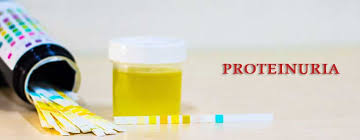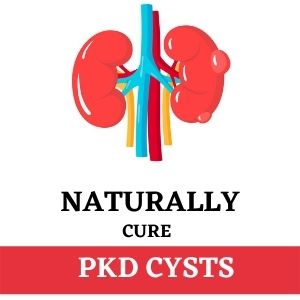"I get no respect", would probably be what your kidneys would say if they could talk. We often deem a toned body and sharp jawline as good health, but in reality, the real definition of "Good health" remains unclear and unknown. You may look perfectly fit and healthy from the outside, but your kidneys also deserve as much attention as you give to your outer self.
"Youth is such a powerful tonic", some people probably in their 20s often live in denial that kidney-related problems won't happen to them. But do you know that chronic kidney disease is a primary cause of premature death among the youth?
Yes, you've read that right; kidney-related problems can fairly occur in people of all ages, gender, caste, or races. The worst part is that a person with compromised kidneys' functioning might not feel any visible signs at the initial stages until the problems get advanced over time and can't be prevented with routine medications.
Today's article is on a very common kidney complication that leads to an excessive loss of protein from the body. This condition is called proteinuria, in which your kidneys fail to hold back protein from seeping out from the body when you pass urine. If not controlled in time, proteinuria can welcome some serious health conditions, such as excessive hair loss, skin and nail problems, fatty liver, stunted growth in children, low muscle growth, and weak bones that are more prone to get fractured.
Let's take a closer look at the symptoms, causes, and how you can prevent the spread of this disease with Protein loss in urine treatment in Ayurveda
What are the primary symptoms of proteinuria?
Often, a person suffering from protein loss in urine doesn't experience visible signs at the beginning. However, it gets advanced over time; symptoms may include the following-
- Tiredness
- Shortness of breath
- Having frequent urges to pass urine
- Loss of appetite
- Having severe muscle crampings at night
- Having foamy or bubbly urine
- Swelling in belly, feet, ankles, or face
- Sudden weight loss without even trying
- Weakness
How Does Protein Get into The Urine?
Your fist-sized kidneys share mighty importance in keeping you alive. Kidneys have a cluster of tiny blood tubules ( Glomeruli) primed to purify your blood from waste products and holds back protein from seeping out from the body. But certain environmental and biological stresses can affect the functioning of Glomeruli, and they stop functioning properly as they should. Here we've listed some possibilities, which include the following-
- If you have type 1 or type 2 diabetes
- Overconsumption of oral supplements
- Low blood pressure
- Kidney stones
- Severe dehydration
- Autoimmune disease, such as lupus
- Strenuous workout
Is There Any Way to Prevent Proteinuria?
You're required to seek medical help if you constantly have foamy urine. Foamy urine is a clear indication of proteinuria that indicates a higher concentration of protein in the urine than other substances. But it's not mandatory that having foamy urine is a sign of kidney dysfunction; other factors can cause foamy urine, which might include the following possibilities-
- When you hold urine for a longer period
- Excessive consumption of alcohol
- When your uric acid is high
- When you do an intense workout
- When you're under certain medications
Is There Any Special Diet For Proteinuria?
A person suffering from proteinuria has to make various modifications in their diet to protect their kidneys from further damage. A person during proteinuria is recommended a moderate protein diet depending on the severity of the disease.
People with compromised kidneys' functioning are restricted from consuming salt as eating too much salt can promote fluid retention, resulting in swelling and high blood pressure. Here we've listed some handpicked foods that are suitable for proteinuria patients-
- Red grapes
- Cauliflower
- Paneer
- Milk
- Tofu
- Soybeans
- Pineapple
- Onion
- Cloves of garlic
- Lettuce
- Tomatoes
How Can Proteinuria Be Prevented?
In allopathy, proteinuria at the end-stage can be controlled with certain medications to prevent the leakage of protein from the body. If you're looking for a permanent and natural revival of your kidneys' functioning the switch to Protein loss in urine treatment in Ayurveda
The Ayurvedic treatment uses a distinctive approach in curing any kind of damage, swelling, obstruction or inflammation occurring inside your kidneys and interfering with their functioning. The treatment uses various combinations of natural herbs that heal the affected area and increase your body's ability to fight against the disease naturally. The Ayurvedic treatment is safe and equally supportive for people of all ages as the formulation of medicines are entirely-natural that work on the affected area without leaving side effects on the body.




